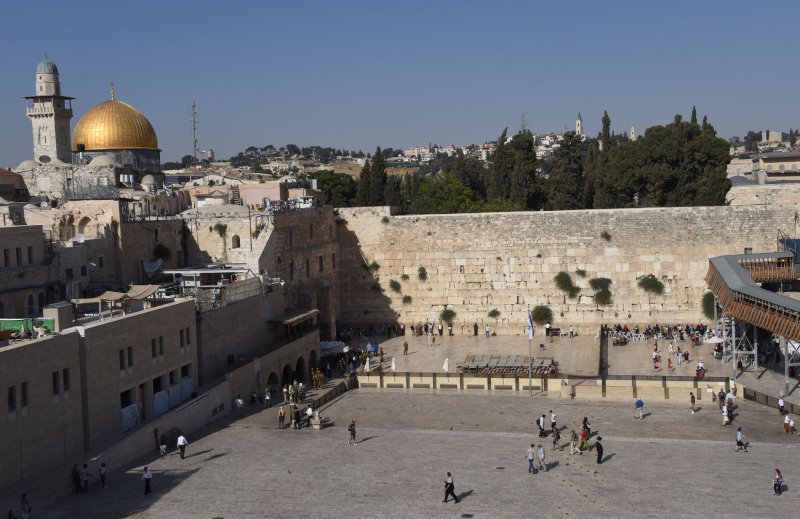Israel's government approved the construction of a cable car meant to transport thousands of people to areas such as the Western Wall. File Photo by Debbie Hill/UPI |
License Photo
Nov. 5 (UPI) -- The Israeli government approved the construction of a cable car in Jerusalem, prompting criticism about its cost and its implications on land disputes with Palestine.
Israeli Finance Minister Moshe Kahlon on Monday announced the cable car will carry 3,000 people an hour to the Old City in both directions from Jerusalem's First Station to the Western Wall.
Jerusalem Affairs Minister Ze'ev Elkin said the project is a strategic effort to promote tourism in the city.
"Step by step, we are transforming a vision into a new reality," Elkin said.
The nearly mile-long cable car would cross into the eastern part of Jerusalem, which Palestinians and many other nations identify as occupied territory.
The Palestinian Authority Governor of Jerusalem Adnan Ghaith described the cable car as a "Zionist project" by the Israeli government.
"They started with underground tunnels and now they want to Judaize the sky and change every Arab symbol in the city -- the stone, the trees and the people," he said.
Israeli non-governmental organization Emek Shaveh also criticized the government's decision to approve the project while failing to approve other funds "for the disabled and for health" as the country attempts to form a unity government.
"In our opinion, a transitional government is not authorized to approve national projects on this magnitude with such significant political implications for Jerusalem," the group said. "The appeal to the High Court is intended to prevent the destructive impact that a cable car will have on the Old City landscape and on the fragile political situation in Jerusalem."















